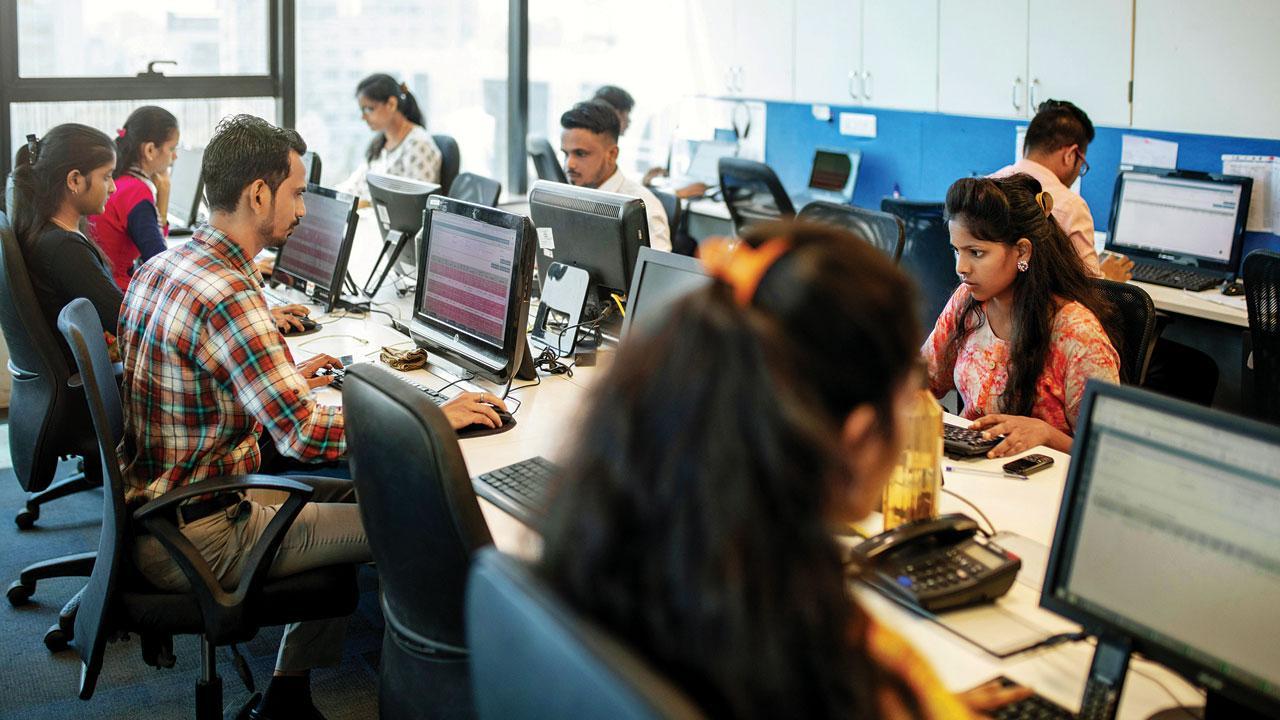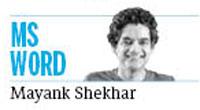Unless the world’s upturned again, we’ll probably go back to the desi definition of ‘work from home’—it’s called the weekend!

It’s the company, isn’t it-not the one you work for; but the one you keep-that’s more pleasurable than the journey, or destination itself
 If you aren’t self-aware to know it’s you, tell me you know someone who, through the day in office, peers from the top-edge of his cubicle, with almost equal frequency (every half hour or so), to gently keep an eye on what the boss in the corner office is up to.
If you aren’t self-aware to know it’s you, tell me you know someone who, through the day in office, peers from the top-edge of his cubicle, with almost equal frequency (every half hour or so), to gently keep an eye on what the boss in the corner office is up to.
ADVERTISEMENT
With a look of wonderment, filled with FOMO, he can’t stop his gaze, over who’s sidled in to meet him, what could be going on in that conversation, and importantly, when the boss leaves office, finally. That’s when he will—even if he was playing Candy Crush all along.
What’s this personality type the adult equivalent of? Obviously the front-benching teacher’s pet, who eventually graduates into that over-diligent subset of the desi corporate labour force, for whom work=network + self-worth. Frankly, I get this group behaviour. Not every job in the universe is measurably quantifiable, by way of output. But its face-time/visible input is.
Which, like tenets of law/justice, forces employees to be seen to be working, as much as they actually are. Otherwise, what’s the point? Hence, press ‘Reply All’ to every mail. Even to the HR asking to assemble for rangoli during Diwali: “Noted.”
What does WFH (Work from Home) do to this key demographic? Did COVID-19 also kill chamchas at workplaces? Unlikely. The field might remain as unlevelled on Outlook/WhatsApp/GChat as the full workforce in the same offline space. Maybe office politics gets considerably reduced, with less to tattle about on a Zoom call—that starts and ends, once meetings do? Quite likely, office romances too.
The issue, I suspect, arises when, inspired by the success of the globe’s largest WHO led, WFH programme, employers allow their staff to pick between WFH and WFO (Work from Office)—go “hybrid”, as it were.
Guess who loses? The guy on the screen who puts forth bright ideas, only to be switched off once the meeting ends. Conversations casually carry on with others in that office boardroom thereafter; and down the corridor, over free cookies and green tea.
You don’t have to be the one willing to lick, soon as you spot an oppor-chutney, to know you’ll miss out—simply because you weren’t there. For, better ideas came up, as they inevitably do, with people feeding off people.
It’s the company, isn’t it—not the one you work for; but the one you keep—that’s more pleasurable than the journey, or destination itself. “Where do you see yourself five years from now,” asks the boss. Hanging with Siri/Alexa after Zoom? Hope not.
Whether WFO > WFH (home, meaning Honduras or Hawaii), depends on what you do for a living, though, no? Jobs, like sport, are either team or individual. Some, like cricket, can be both. Even then so, Sachin will eventually feel left out, when kept from team strategy after a Zoom call. Even if he scores a ton, every time he steps on the crease, and goes back to WFH nonetheless. Although sport may not be the best analogy for jobs.
Sportspersons’ immediate equivalent are those who collectively work with their hands and feet—that is majority of the world’s workforce, that simply can’t WFH. And what they do is often not labelled a “job”—which, in effect, implies a desk, placed to send mails, host meetings, negotiate “monies”, creating little of quantifiable worth, in real terms. This is the transactional services’ lot that gets paid the most, and hankers for increments the hardest.
What determines preference for WFO or WFH there, if you had the choice? It turns out, according to a real estate company’s research during the first peak of pandemic—your gender. As per that survey, maximum pushback to open up offices (before the second wave, that shocked/sobered us all), came from women. Not because they saw the clock reversing centuries, with women being forced indoors again.
They were essentially experiencing WFH as Work + Home, with lazy bums (for cohabitants) hardly moving an inch, creating craters in couches, expecting someone to clean up after them. Yup, that’s you, lazy boy, who’s channelled a year and half’s worth of commute time, travelling between bed and sofa in boxers, with cellphone in elbow position, and the laptop (on mute), firmly planted on the chest. “Am I audible,” asks the boss. Yes, yes!
This liberating exercise regimen is of course not what you signed up for an office. That are designed like the opposite of elected autocracies. You actively apply to be elected, so you can serve under a dictatorship/monarchy.
What good is that king of the hill—with a corner-office finally attained, once he’s (age wise) quite over-the-hill himself—if there is no kingdom to survey, and chamchas to bump into. Screw rise in your productivity, his home is like your home. That isolated throne before a laptop screen for a Zoom call is just a piece of IKEA furniture.
Majority might like it this way. Nobody’s taking a vote/poll. It’s not a long-term choice you have, unless the world’s upturned again. Trust me, that boss will have you back in office. Don’t say FO to WFO yet. Chill, while you can, before you return to the original, desi definition of ‘work from home’. It’s called the weekend!
Mayank Shekhar attempts to make sense of mass culture. He tweets @mayankw14
Send your feedback to [email protected]
The views expressed in this column are the individual’s and don’t represent those of the paper.
 Subscribe today by clicking the link and stay updated with the latest news!" Click here!
Subscribe today by clicking the link and stay updated with the latest news!" Click here!







